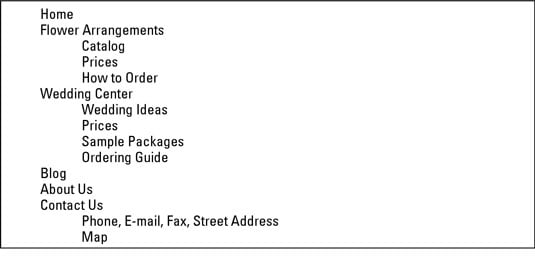Hiring a web design company to build your small business website is similar to hiring a marketing agency. Your small business website deserves professional treatment, as it represents the main gateway for reaching your target audience with your marketing message and small business branding.
Find professional help in designing your small business website
When businesses look to hire an ad agency, they contact ad agencies. In contrast, when they look to hire help for their website, too often they contact friends, relatives, or the guy down the street. Advice: Seek help from someone who not only has experience but also has a business doing the kind of work you need done. Here’s how to begin the selection process:
Search online for web designers in your city. If you’re considering a shop that doesn’t appear in the results, move on to another candidate. If the business you’re considering can’t optimize its own online presence, it probably can’t optimize yours.
Instead, contact companies that appear high in results. Even if they handle projects bigger than the one you’re undertaking, chances are good they can refer you to smaller shops they know and trust.
Check out the website of any firm you’re considering. Is it fast to load, attractive to look at, easy to navigate, and capable of making a great impression? These are qualities that you want in your own website, so it makes sense that your web design firm should execute them well.
Review a range of sites produced by the business. A good web design firm’s site features a portfolio of work. Click through the samples, looking for consistent quality and a range of unique site designs.
Also, look to see what kinds of clients are represented. If the clients concentrate in your business arena, you’ll likely benefit not only from technical expertise but also from awareness of how companies like yours use their sites to grow their businesses and interact with their clients — all important factors to a successful web presence.
Focus on website design needs for your small business
Before contacting website design firms, know what you’re looking for.
What kind of site are you building? Do you want a site that presents information as a complement to your bricks-and-mortar business or are you planning to invest in an interactive site that features an online store, e-mail subscription forms, a blog, an online catalog, photo galleries, product videos, or other features?
How many pages do you think your site will include? Search engines don’t require site maps for indexing small sites, but it’s still helpful to create a rough map you can share with designers for planning purposes.

Do you want to be able to update and edit your site’s content without relying on outside expertise?
What do you want your site to do? Do you want to make sales? Do you want to be able to easily store and retrieve information from a database?
How would you describe those you expect to visit your site, and how do you envision them reaching and using the site?
How do you plan to drive traffic to the site? Whether your site is primarily for use by established customers or for reaching new prospects affects how it’s designed and optimized for search engines.
What sites are similar in look and complexity to the one that you’d like to create?
Interview designers for your small business website
When interviewing website designers, include the following questions:
Do they know how to code HTML or PHP? If not, they’ll rely on web development software, which limits the design and complexity of the sites they can produce.
Do they use templates when creating websites? If you’re looking for an economical site, a firm that uses templates can provide efficient solutions. Today, WordPress and other design systems provide a wide range of themes that you can customize, along with prewritten plug-ins that deliver great features without the cost of custom code.
Another advantage: If you ask other designers to work on your site in the future, chances are good they’ll know how because the systems are in such common use.
Do they follow a structured planning process that’s outlined in a document that helps you understand key steps and decision points?
How do they address search engine optimization (SEO), and is that service included in their fee estimates?
Do they handle and how do they charge for site updates?
What other services do they provide? Do they provide domain name registration, search engine submissions, SEO services, web content writing services, social media marketing services, blog promotion, online advertising, web hosting, site maintenance, and marketing services?
When and how do they charge? And when do they require payment?
Expect a request for an upfront deposit but run — fast — if they require full payment in advance.
Can they meet your deadline? Put differently, how long does it typically take them to complete a site?
Will you own your domain name and the administrative rights to your site? Will you also own all the code on your website so you can modify it in the future without charge? Will you be able to move the site to a different hosting company? You want the answer to each of these questions to be, unquestionably, “yes.”
Finalize your choice of small business website designer
When you think you’ve found your website designer, take two more steps. First, ask for and contact past clients to hear how they evaluate the expert. How did the development process go? Were they happy with the results? Did the project stay on budget? Would they hire the designer again?
If you hear all the right answers, the final step is to hire the designer, but not before obtaining a firm quote, in writing, and signing a contract.
Most web design firms provide a contract, and it should include an estimate cost for the site design and details on what the estimate covers. It should also include a payment due date, and details on who must fix problems if the site doesn’t work because of dead links or site crashes.
The contract should include a clause stating that the cost estimate can’t be exceeded without your prior written authorization. It should also detail penalties for nonperformance and performance milestones. In addition, the contract should clearly state that you own the site and its components.

